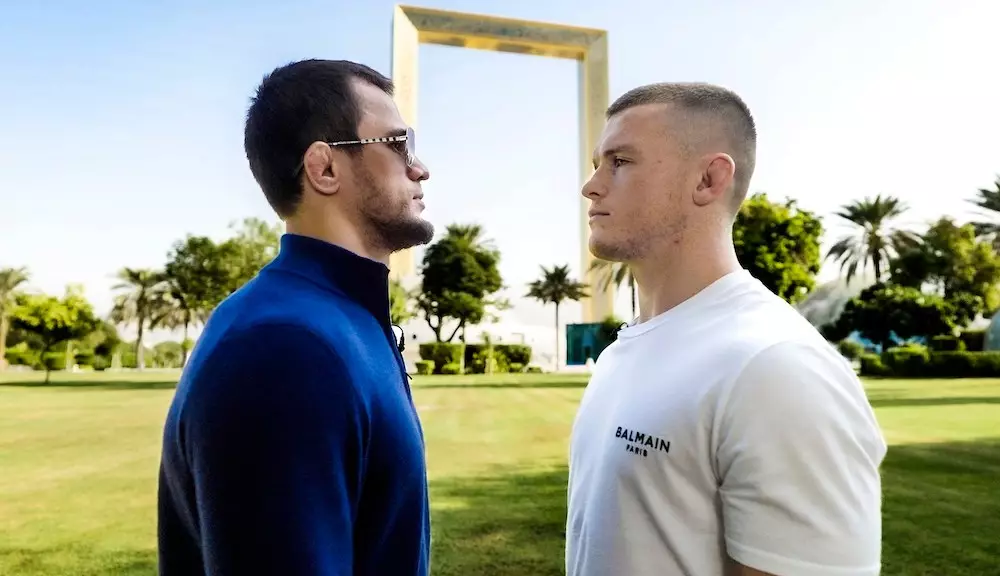In the world of mixed martial arts (MMA), national pride often intertwines with athletic prowess, leading to intense rivalries that define careers. One such rivalry was etched into history when Khabib Nurmagomedov faced off against Conor McGregor, an epic battle that not only showcased their skills but also highlighted a broader cultural clash between Dagestan and Ireland. Ahead of his cousin Usman Nurmagomedov’s imminent title defense against Irish fighter Paul Hughes, Khabib’s recent comments have ignited discussions regarding the quality of fighters emerging from Ireland compared to those from his homeland.
Khabib does not hold back his views on the caliber of Irish fighters in MMA, claiming there are only a handful of notable competitors. In a bold assertion made in an interview, he pointed to just two viable contenders—Paul Hughes and the infamous Conor McGregor. Although he acknowledged Ian Machado Garry, he stressed this hardly matches the overwhelming might propagated by fighters from Dagestan. “Ireland doesn’t have fighters, brother,” he bluntly stated, revealing a sense of nationalism and confidence in the combatants hailing from his region. This proclamation serves to elevate the position of Dagestani fighters on the international scene.
A Culture of Excellence in Dagestan
The essence of Khabib’s argument stems from the rich culture of combat sports in Dagestan. For many, Dagestan represents a breeding ground for exceptional athletes who are molded by a tradition that emphasizes discipline, respect, and relentless training. With numerous organizations within Dagestan nurturing emerging talents, Khabib believes that fighters from his region are not just abundant but are also exceptionally skilled, making it difficult for outsiders to compete. “You come to Dagestan, and you can understand,” he commented, emphasizing the rigorous environment where success is not merely possible—it is expected.
Since retiring from active competition in 2020, Khabib has transitioned into a coaching role, overseeing the development of fighters such as Usman and Umar Nurmagomedov, as well as his close training partners. His experience as both a competitor and now a mentor provides him a unique vantage point to assess talent and potential. Khabib’s comments underline his profound belief in the superiority of Dagestani fighting techniques, which he attributes not only to training but also to an ingrained mentality focused on excellence.
The Future of MMA Rivalries
While themes of regional superiority are common in sports, Khabib’s remarks underscore the passion and pride embedded in MMA culture. The upcoming fight between Usman and Hughes could potentially reignite discussions on the ongoing rivalry between Irish and Dagestani fighters. However, whether or not this rivalry has a significant competitive edge remains a question marked by Khabib’s assertions. Ultimately, this clash is not just about championships; it embodies a narrative that stretches beyond the octagon, capturing the essence of nationalism in sports. As fighters from both regions continue to rise, one must consider whether such rivalry will propel them to unprecedented heights or merely remain a side note in the broader narrative of a sport defined by evolution and inclusivity.

